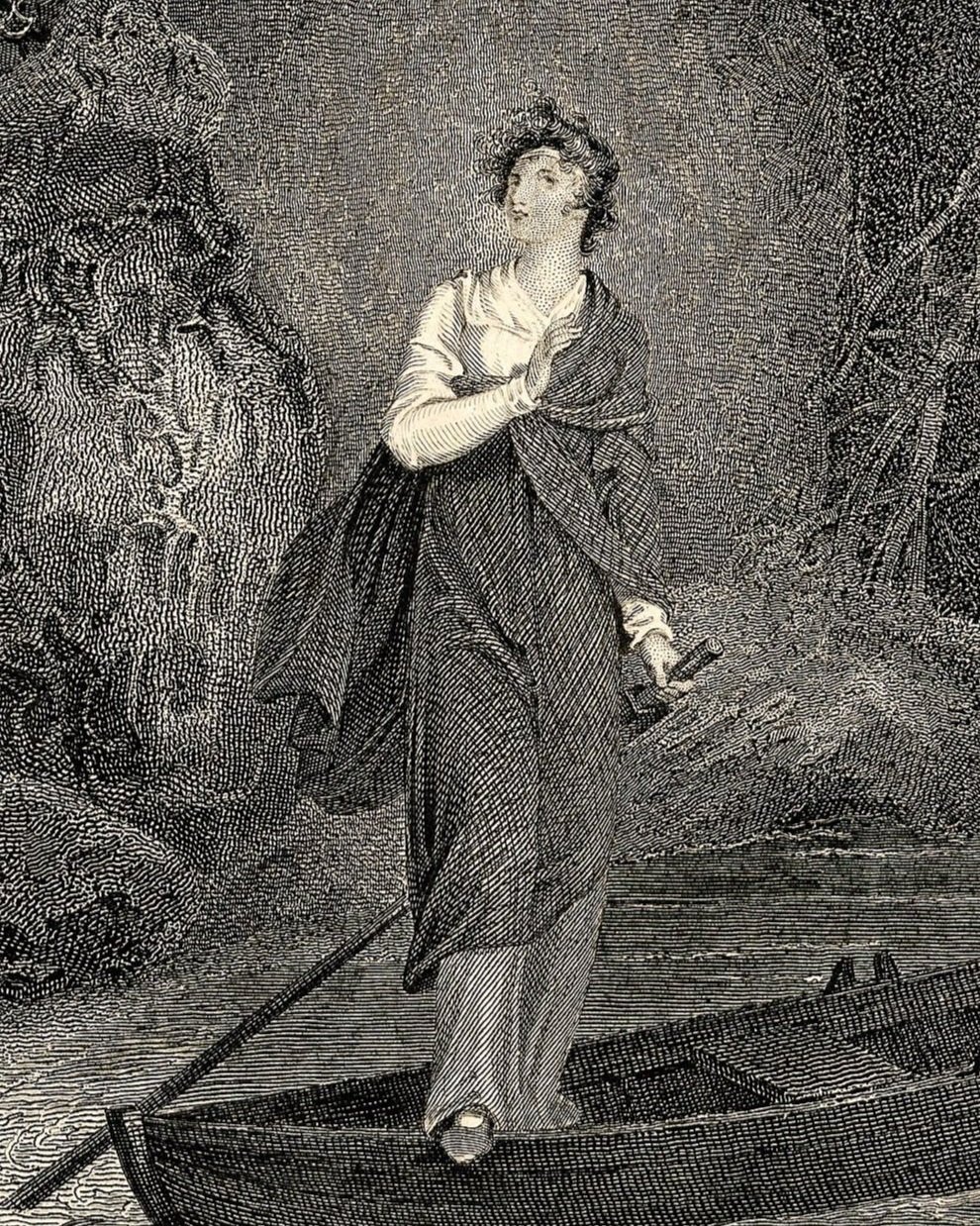Meet the vibrant characters of La donna del lago
Ellen’s Isle - Loch Katrine
Rossini’s La donna del lago is a story with deep roots in Scottish history. Based on the narrative poem by Sir Walter Scott, The Lady of the Lake, the story concerns the power struggle between King James V for control over the Scottish Highlands — and for the heart of Elena.
Some of the characters in La donna del lago are based on real people, while others take inspiration from the historical figures of the time. Let’s get to know the characters from this under-performed operatic gem!
Elena Duglas (Ellen Douglas)
Elena is a fictional character, but her family surname isn’t. The Douglases were a prominent Highland clan who played a major role in many of Scotland’s most epic battles with England. The clan also had a longstanding feud with King James V (more on that later).
Ellen is a common Scottish name, but the poem’s picturesque setting may have also inspired her name.Sir Walter Scott was originally inspired to write The Lady of the Lake by a visit to Loch Katrine. The original Gaelic name of the island was An t-Eilean Molach, meaning “the lush isle.”
In Gaelic, Eilean actually means “island,” but it may have inspired Scott to name his heroine Ellen. Scott’s poem was so popular that Loch Katrine became commonly known as Ellen’s Isle. The name stuck, and was eventually used in maps instead of the original Gaelic form.
King James V/Uberto
One of the (several) men vying for Elena’s affections is Uberto, who is really King James V of Scotland. The real James V was rumored to travel the countryside in disguise to mingle with his subjects, a myth that inspired Sir Walter Scott’s poem.
James V also had a real-life feud with the Douglas clan. Because James V was only 17 months old when he became king, he had a series of rotating guardians. However, when James’ stepfather, Archibald Douglas, 6th Earl of Angus, became his guardian, he refused to give up control of the young king. James V was under Douglas’ control for three years, and was virtually held prisoner. When James V finally took claim to the throne at age 16, he exiled Douglas, beginning a bloody feud that lasted throughout much of his reign.
Malcom Groeme (Malcolm Graeme)
Elena’s true love is the young Highland chieftan Malcom Groeme. In La donna del lago, Malcom is played by a mezzo-soprano, an operatic tradition in which a woman plays the role of a young man, often called a “pants role” in opera.
It doesn’t appear that Scott’s Malcolm Graeme was based on a specific figure, but he does share a name with the Graeme/Grahams of Montrose, a clan who controlled territories in both the Scottish Highlands and Lowlands. Legend says that the Grahams are descendants of one Græme who commanded the armies of Fergus II in 450 A.D., breaking the Antonine Wall and driving the Roman legions out of Scotland. We can’t be sure what inspired Scott’s character, but this would certainly be a fitting name for the honorable and heroic Malcolm.
Duglas d’Angus (Douglas of Angus)
In La donna del lago, Duglas d’Angus is the king’s former tutor, who has now been exiled as his enemy. While it’s unclear if Duglas is based entirely on one person, his character was certainly inspired by James V’s imprisonment by and the real-life exile of Archibald Douglas, 6th Earl of Angus.
Rodrigo di Dhu (Roderick Dhu)
Rodrigo is the rebel chief of the Highlanders, who is also betrothed to Elena. While not a real person, in the poem, Roderick is the head of clan Alpine (sometimes called Alpin or MacAlpine), a family of seven Scottish clans who claimed to descend from Cináed mac Ailpín (Kenneth the I of Scotland), King of the Picts, whom the Scots consider their first King. In Gaelic, dhu, means “black,” and was commonly used as a descriptor and nickname because many people shared the same surnames.
Roderick Dhu is also a part of American music history! “Hail to the Chief” is played when the President of the United States arrives at any formal occasion, but its origins lay in The Lady of the Lake. Written by James Sanderson, the song sets Stanza XIX of the Second Canto of Scott's poem, “Hail to the Chief who in triumph advances! Honored and blessed be the ever-green Pine!” The poem's "Chief" is none other than Roderick Dhu, who dies in battle at the monarch’s hand.
See how the drama unfolds June 28 and 30 at the Charity Randall Theatre.
Tickets for Rossini’s La donna del lago are on sale now!





